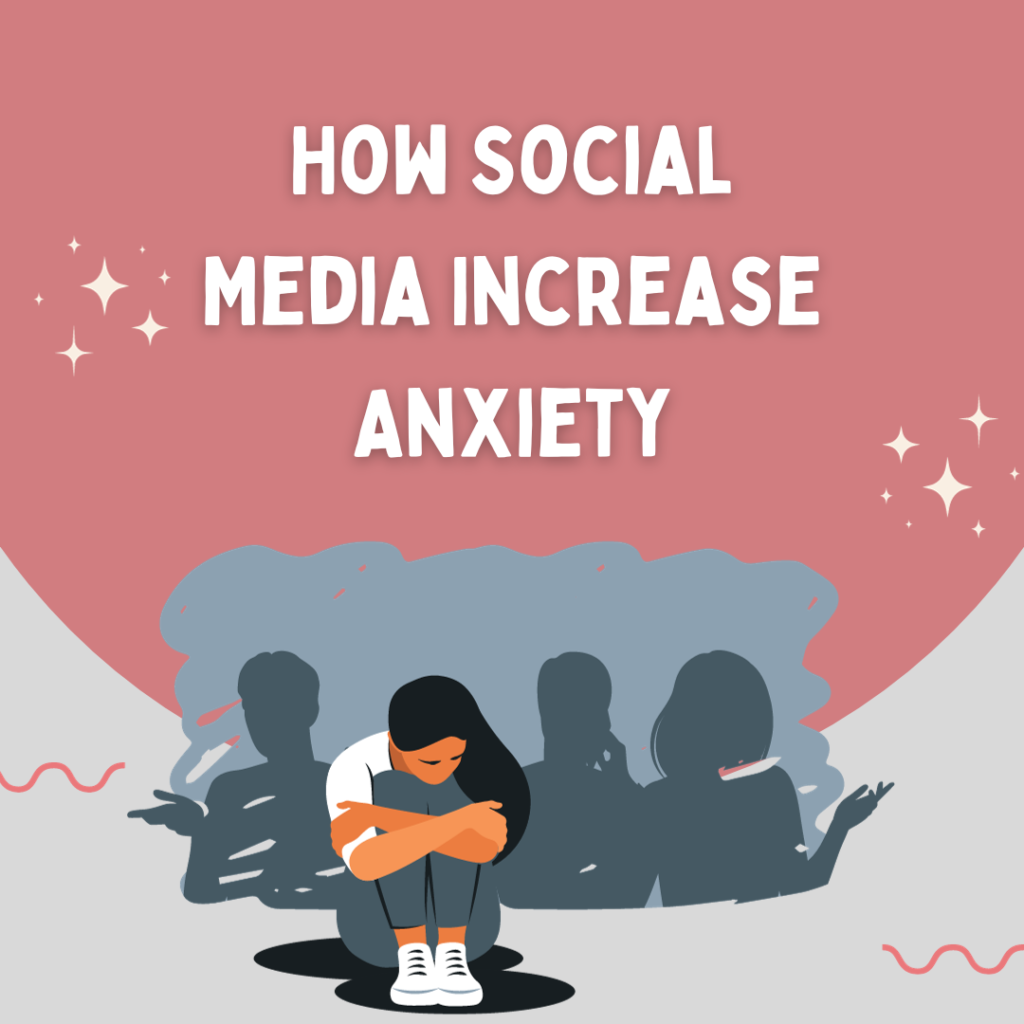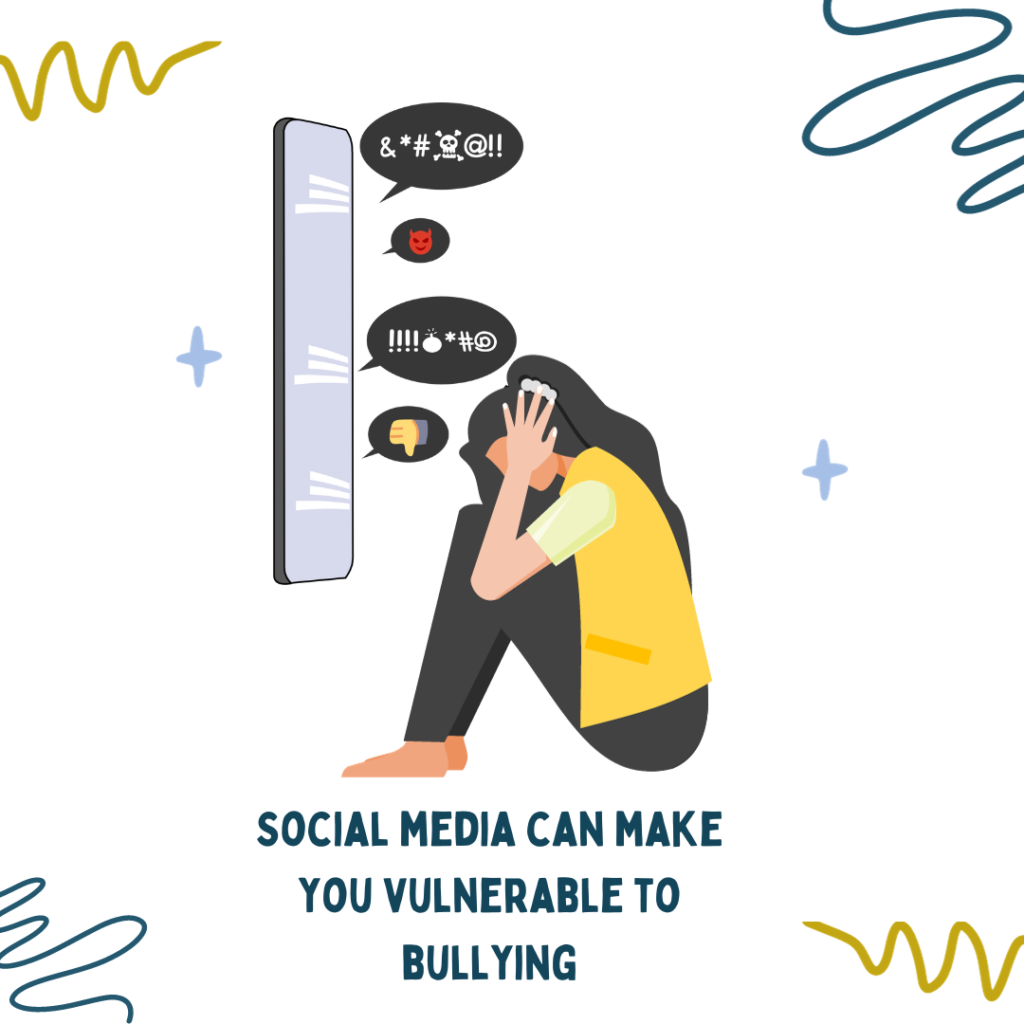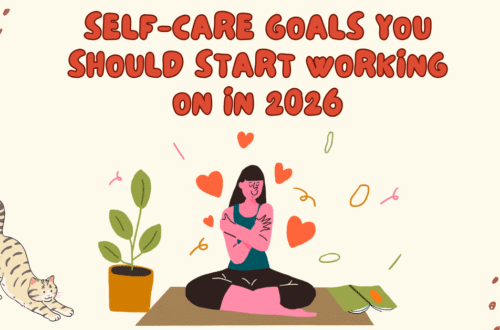
5 Ways How Social Media Increase Anxiety
Have you ever noticed that after using social media, your anxiety increases? Possibly even while you scroll? The phrase “social media-induced anxiety” refers to the feelings of stress, anxiety, or distress that can arise from the use of social media platforms.
Social media increases anxiety if you use it often you will be exposed to an increasing variety of content types, including curated profiles, highlight reels, news, and discussions, which may increase anxiety and uneasiness. See how social media can make people more anxious by scrolling through this post. Setting healthy boundaries and creating plans for deliberate, mindful use of social media can be beneficial.
It may involve limiting screen time, unfollowing accounts that trigger negative emotions, practicing self-compassion, and engaging in activities that promote offline connections and well-being. It’s essential to remember that social media portrays a carefully edited version of reality and does not accurately depict people’s lives.
How can social media cause anxiety?

How can social media cause anxiety depends on many factors Social media-related anxiety might result from the constant need for approval through likes and comments.
A 2020 study found that using social networking sites longer may also be linked to an increase in social anxiety symptoms, which may be more pronounced if you use the website passively.
Social Media Increases Anxiety
” I can’t change the direction of the wind, but I can adjust my sails to always reach my destination. “
Jimmy Dean
1-Fear of Missing out ( FOMO )

FOMO, or fear of missing out, is the ghost that stalks our online world. It’s the anxiety that develops while we watch friends go on journeys, attend thrilling events, or savor moments of laughing and friendship.
The virtual window into their life might give us an uneasy sense of exclusion, making us feel more anxious since we long to be connected and engaged.
What Can Help With FOMO
- If you feel FOMO towards someone online, ask yourself: what is it that you need? Is one of your values not being fulfilled? How can you create these experiences in your own life?
- Why not consider stepping from media for a while? It can allow you to focus on your life and experiences. It also significantly decreases FOMO.
- Take the time to enjoy your experiences. We can often get stuck in a cycle of rushing through them, trying to experience it all – now. But we end up truly experiencing none of them fully.
- Talk to your true friends and family members frequently.
Why does social media cause anxiety?
2-The Quest for Digital Validation

A validation game is hidden within the social media algorithms. The categories of self-worth are likes, comments, and shares. The search for digital validation is like wanting to be popular and feel good on the internet. People love getting likes and comments on social media because it makes them feel important and liked by others.
They often choose what they share carefully to get more likes. But it’s important to remember that true happiness should come from how you feel about yourself and having genuine friends, not just from what happens online.
3-Comparing Our Lives

Social media content is often carefully curated and flawlessly edited. Similarly, when we view a shining, clean apple from the outside, we might not notice the blemishes or lumps. On social media, we frequently see people sharing their best life moments. It’s like seeing a highlight video. But when we compare our everyday life to these highlights, we might feel like we’re not as good or happy. That comparison makes us anxious.
However, it’s essential to understand that nobody’s life will ever be perfect. Regardless of whether they appear on social media, all of us experience difficulties and not ideal times. Therefore, it’s wise not to judge others too harshly or compare ourselves to others too much.
4-Social media can make you vulnerable to bullying

Using social media can sometimes put you at risk of being bullied. When you share things on the internet, not everyone will be nice, and some people might say hurtful or mean things to you. These online bullies can hide behind screens and say things that can make you feel terrible.
So, it’s important to be careful about what you post and to tell someone if someone is being mean to you online, to help make the internet a nicer place for everyone.
5-Information Overload
Imagine social media as a huge, loud orchestra of information. It sounds like everyone is playing their instruments, making a lot of noise. Similar to trying to hear a piece of great music during a busy event where everyone is playing their song, it is difficult to stay focused.
We must understand the art of orchestrating harmony within this ensemble allowing us to fully enjoy the music without being overwhelmed by disorder.




